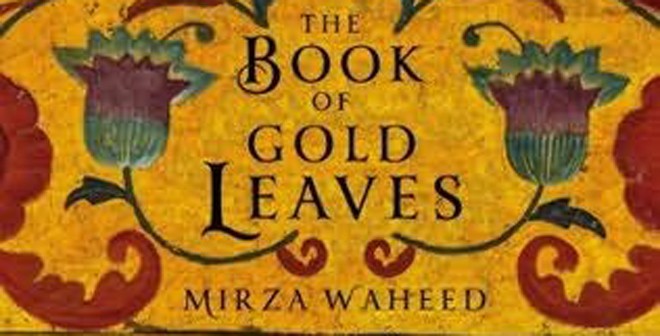
Mirza Waheed’s new book is a harrowing tale of love in a time of conflict and change

Mirza Waheed’s first book, The Collaborator (2010) was a hard act to follow: the story of a young man in a Kashmiri village whose companions have all left to cross the border and join the resistance to the Indian army. It was a harrowing yet lyrical tale of war, loneliness and grief.
Obviously then, I was curious to see how his second novel would measure up, and surprised to find it as impressive a work as his first.
The Book of Gold Leaves is a love story, but love in a time of conflict and change. It is set in the city of Fateh Kadal and the Red Square (so: Srinagar) and its main protagonists are Faiz, a papier mâché artist and Roohi, a beautiful and selfwilled young woman. But their love story unfolds in a time of conflict and change, of growing distrust and fear, of occupation and curfew. They see their old life crumble around them as soldiers convert school buildings into barracks, young local men are ‘disappeared’, others join whatever resistance groups they can (local or cross border), and families struggle to come to terms with the new reality of the increasing military presence in their city.
In the midst of ugly events we are reminded repeatedly of the beautiful landscape in which events unfold and Faiz with his artist’s eye takes note of colours and patterns all around him, and Roohi cherishes local landmarks, familiar haunts whose beauty can remain astounding despite all the familiarity.
Unlike the mournful and elegiac first-person tone of The Collaborator, the language in this book is lyrical, indeed at times it seems to be poetry masquerading as prose. The story takes the reader into several private worlds: not just into the homes and families of Faiz and Roohi but also into the lives of the hapless Major Sumit Kumar and the educationists Professor Madan Koul and his daughter Principal Shanta Koul -- whose girls’ school the soldiers convert into their barracks. The polite but increasingly hostile exchanges between the principal and the major are memorable and reflect sharply the deterioration of the relationship between the soldiers and the locals.
But although the local community is depicted as united in its distrust of the Outsiders, the occupying soldiers, the story also exposes the locals’ own deep seated prejudices and divisions: sectarian, social and communal. Although we may lament that the love story of Roohi and Faiz unfolds during a time of such bitter conflict we also realise that in any other time their union might not even have been possible.
This is a beautifully written book although sometimes I (Philistine!) found the prose is infuriatingly oblique. But actually the beauty of it lies as much in what is described and presented before you as in what is not -- the silences are key: you don’t need to see every gunshot being fired in order to hear its reverberation.
And I know you are not supposed to judge a book by its cover but the cover of this book has its own very special story, particular to Kashmir and Srinagar and the writer’s own family history.
The Book of Gold Leaves is the sort of book one can read and re-read -- and then read again.
That’s what I’m doing now….